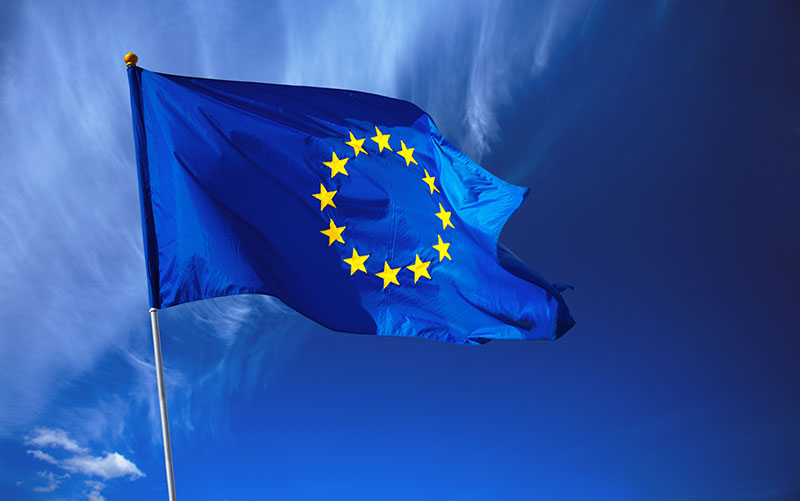Business looks to Brussels to seize economic opportunity
The Prince of Wales's Corporate Leaders Group
A series of highly important decisions have been taken in Brussels over recent weeks that will determine the future investment of billions of Euros and fundamentally shape Europe’s international stance vis-à-vis climate change.
Notably we saw the EU’s Intended Nationally Determined Contribution (INDC), a vote on reforming carbon trading, and the launch of the new Energy Union framework strategy. There’s no coincidence that these should come together. Europe can’t meet its targets for cutting greenhouse gas emissions without appropriate means – namely robust energy policy and an effective carbon market.
European Ministers blazed a trail with a commitment to cut Europe’s greenhouse gas emissions by “at least” 40% on 1990 levels by 2030 – exactly the kind of leadership that’s needed and a shining example to the world. The Prince of Wales’s Corporate Leaders Group alongside our We Mean Business partners welcomed the EU’s commitment when it was originally proposed in October, and is as supportive now that European Ministers have officially submitted it to the UNFCCC. Europe’s INDC is now a very clear signal to the world’s governments, businesses and investors that it is continuing to show leadership on both decarbonisation and low-carbon growth.
The EU has already reduced its emissions by 19% since 1990 (while GDP has grown by 44% over the same period), meaning Europe is more than on track to meet its existing 20% target for 2020.
Europe is committing to move towards its 2030 goal without international carbon offsets. This means that all effort to cut emissions by “at least” 40% will have to be undertaken by domestic measures, requiring new legislation and effort from Europe’s business and citizens. On the business side, effort will need to be shared between industrial sectors in and outside of the European Union Emissions Trading System (ETS), with non-ETS sectors such as transport, buildings and appliances also having to reduce emissions – by 30% below 2005 levels (based on European Commission figures).
The INDC submission takes into account all emissions not covered by the Montreal Protocol, such as those from industrial sources, agriculture, energy, and waste. The move to include emissions from forestry and land-use change (LULUCF) is still up for debate, with analysts raising concerns that it effectively weakens ambition from 40% to 35%. European Commission officials argue that these emissions were included in the EU’s 2020 commitment, and that further considerations regarding the weight of LULUCF will only be made when Europe decides what a cut of “at least” 40% really means.
Defining the “at least” and the role of LULUCF must therefore be achieved quickly in order for Europe’s governments and business leaders to fully understand the real impact of the target and the role it will play internationally – as well as the real level of effort required by other sectors of industry.
While European businesses wait for clarity on this, they are also watching two domestic developments very closely.
The first is the upcoming agreement on 19 March on the reform of the EU EU-ETS and the establishment of a Market Stability Reserve (MSR). The recent Parliament vote not to remove surplus carbon permits from the market as early as possible came as a disappointment to our business leaders. The European Parliament’s Environment Committee members agreed to an end 2018 start date. But to enable low-carbon business decisions across Europe right now, we believe the Council should bring this forward to 2017 at the latest, taking all unsold or ‘backloaded’ permits out of the carbon market from the offset. 70 leading business voices and utility companies have backed this call, in a letter to MEPs. It is fundamental to the ETS sectoral effort in meeting the “at least” 40% emissions goal.
Meanwhile, Europe’s Energy Union framework strategy, released alongside its international commitment, is being developed.The strategy certainly shows that Europe is serious about securing and decarbonising its energy supplies whilst maintaining energy security needs. In particular the Commission should be commended for identifying solutions beyond traditional fossil fuel driven supply-side responses. But while recognising the important role that energy efficiency has to play, gas remains king, and the strategy offers little guidance on how we will finance the transition to greener alternatives. We should prepare ourselves with legislation that will position Europe at the forefront of change, increasing the competitiveness of EU countries, and attracting foreign and domestic low-carbon investment. It won’t be easy for energy companies to shift away from fossil fuels, and this is where carefully planned policy becomes vital.
So all eyes are now on Brussels to see what it does in the months ahead of the all important climate talks in December to show continued leadership internationally, but also how Ministers will commit to delivering low-carbon energy solutions domestically. The question is not ‘if’ we will act on climate change, but ‘when’.
Business firmly expects Paris to be a game-changer and is counting on Europe to deliver at home as well as abroad. This is Europe’s moment to seize an historic economic opportunity.

